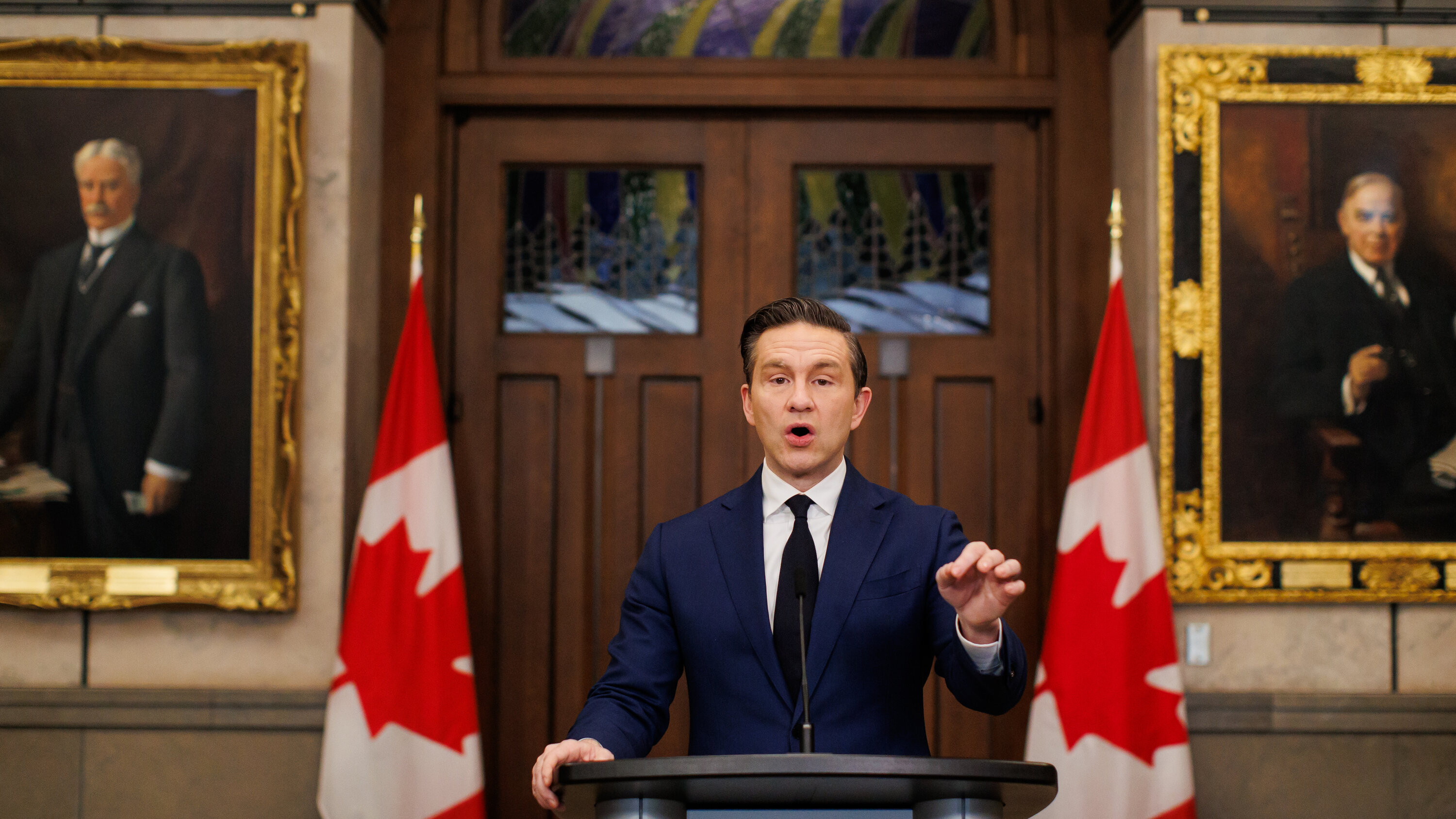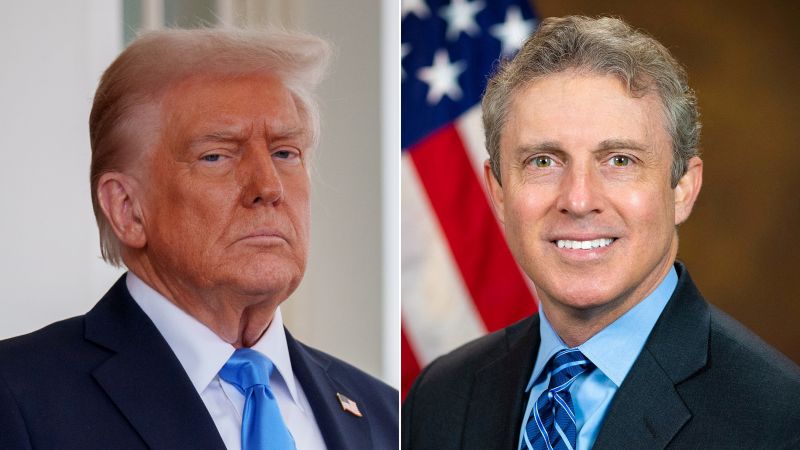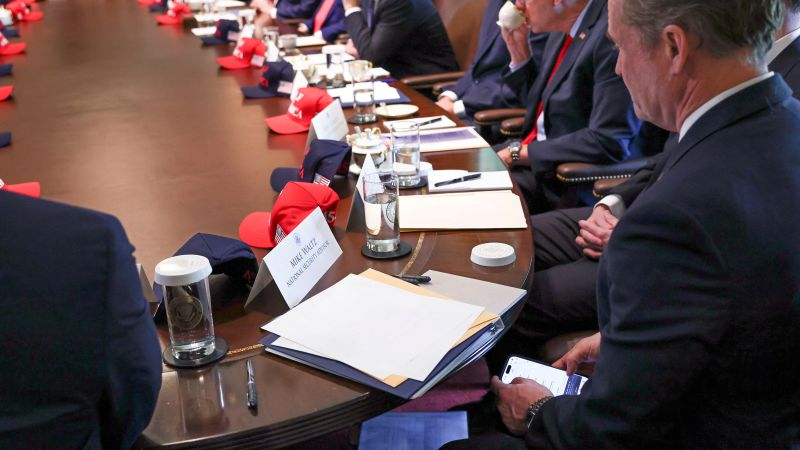Passport Battle: Transgender Community Fights Back Against Trump's Controversial Policy Shift
Politics
2025-03-25 14:37:09Content

In a bold legal challenge, the American Civil Liberties Union (ACLU) is taking a stand against a controversial passport policy that discriminates against transgender individuals. The organization is pursuing a preliminary injunction to challenge a regulation that would force trans people to obtain passports reflecting their assigned sex at birth, rather than their true gender identity.
This legal action aims to protect the rights of transgender Americans who have long struggled for recognition and dignity. By seeking to block this restrictive policy, the ACLU hopes to prevent a significant setback in transgender rights and personal identification. The injunction represents a critical moment in the ongoing fight for gender self-determination and equal treatment under the law.
The proposed policy would effectively erase the gender identity of transgender individuals, compelling them to use documentation that does not align with their authentic selves. Such a requirement not only undermines personal dignity but also exposes transgender people to potential harassment, discrimination, and emotional distress.
As the legal battle unfolds, the ACLU continues to champion the rights of marginalized communities, challenging policies that seek to limit personal freedom and self-expression.
Civil Liberties Clash: ACLU Challenges Passport Regulations Targeting Transgender Individuals
In an unprecedented legal battle that strikes at the heart of personal identity and governmental oversight, the American Civil Liberties Union (ACLU) has launched a formidable challenge against a controversial passport policy that threatens to undermine the fundamental rights of transgender Americans.Defending Identity: A Critical Fight for Personal Autonomy and Legal Recognition
The Constitutional Battleground of Personal Identity
The current passport policy represents a profound intrusion into the deeply personal realm of gender identity. Transgender individuals face an increasingly complex legal landscape where their fundamental right to self-identification is systematically challenged by bureaucratic mechanisms designed to restrict their personal autonomy. This policy effectively mandates that individuals' passports must reflect their biological sex at birth, a requirement that fundamentally contradicts the lived experiences and legal recognitions of transgender Americans. The implications of such a policy extend far beyond mere documentation. It represents a systematic attempt to delegitimize transgender identities, creating significant barriers to personal freedom, international travel, and basic human dignity. By forcing individuals to carry documentation that does not align with their gender identity, the government effectively institutionalizes a form of legal discrimination that undermines the principles of personal recognition and self-determination.Legal Strategies and Constitutional Challenges
The ACLU's pursuit of a preliminary injunction represents a sophisticated legal strategy designed to challenge the policy's constitutionality. By seeking immediate judicial intervention, the organization aims to prevent the implementation of regulations that potentially violate fundamental civil rights protections. Their legal argument centers on the principle that governmental policies must respect individual identity and cannot arbitrarily impose restrictive classifications that marginalize specific communities. Constitutional scholars argue that such policies potentially violate multiple legal principles, including equal protection clauses and personal privacy rights. The injunction seeks not just to challenge a specific administrative rule, but to establish a broader legal precedent that affirms the rights of transgender individuals to be recognized according to their authentic gender identity.Broader Societal Implications and Human Rights Considerations
The passport policy controversy illuminates deeper societal tensions surrounding gender identity and governmental recognition. It exposes the ongoing struggle between bureaucratic systems designed around binary gender constructs and the complex, nuanced realities of gender diversity. Transgender individuals are forced to navigate a legal landscape that frequently fails to acknowledge their lived experiences. International human rights organizations have increasingly criticized such restrictive policies, arguing that they represent a fundamental violation of personal dignity and self-determination. The ability to obtain documentation that accurately reflects one's gender identity is increasingly recognized as a critical component of human rights and personal autonomy.Psychological and Social Impact of Documentation Restrictions
Beyond the legal complexities, the passport policy carries profound psychological and social consequences. Transgender individuals subjected to documentation that does not align with their gender identity experience significant emotional distress, potential public humiliation, and systematic marginalization. Each interaction requiring documentation becomes a potential site of trauma, where personal identity is externally challenged and invalidated. Mental health professionals emphasize that such policies can exacerbate existing mental health challenges within the transgender community, potentially increasing rates of anxiety, depression, and social isolation. The constant requirement to justify one's identity through bureaucratic mechanisms represents a continuous psychological burden.Technological and Administrative Pathways to Inclusive Documentation
Progressive jurisdictions worldwide are exploring more inclusive documentation strategies that recognize gender diversity. These approaches involve creating flexible administrative frameworks that allow individuals to self-identify and update documentation with minimal bureaucratic resistance. Technology and evolving legal frameworks offer promising pathways to more humane, respectful documentation practices. The ACLU's current legal challenge represents more than a specific policy dispute; it is a critical moment in the ongoing struggle for comprehensive legal recognition of gender diversity. By challenging restrictive passport regulations, the organization seeks to establish a more inclusive, compassionate framework for personal identification that respects individual dignity and self-determination.RELATED NEWS
Politics

Inside the Pentagon's Canceled Briefing: Musk, China, and the War Room Secrets
2025-03-21 23:17:36
Politics

Disney's 'Snow White' Drama: Producer's Son Blasts Rachel Zegler's Controversial Comments
2025-03-26 23:06:07
Politics

Trade War Tremors: How Trump's Diplomatic Grenades Shatter Conservative Strategy
2025-02-17 10:02:28





